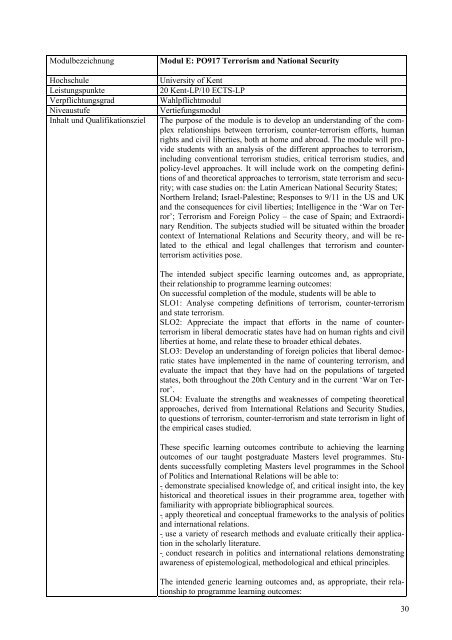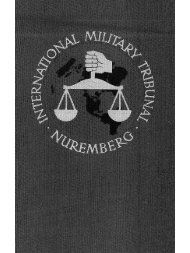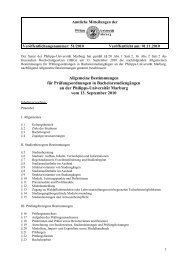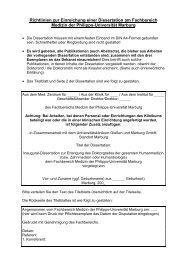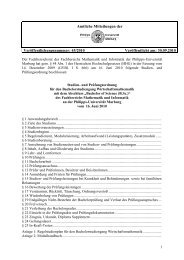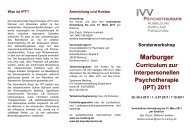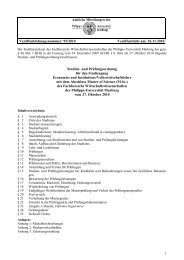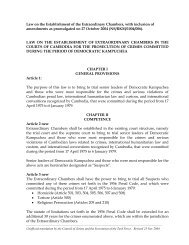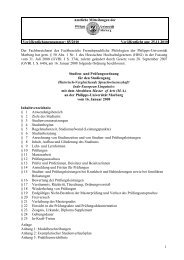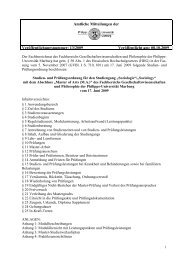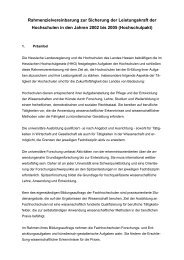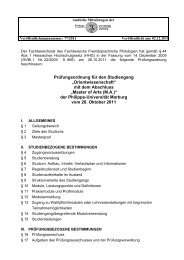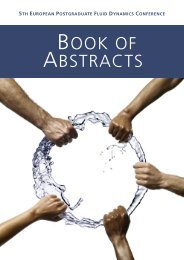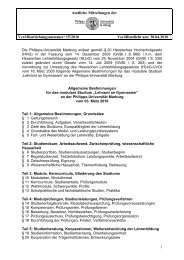Peace and Conflict Studies - uni-marburg
Peace and Conflict Studies - uni-marburg
Peace and Conflict Studies - uni-marburg
You also want an ePaper? Increase the reach of your titles
YUMPU automatically turns print PDFs into web optimized ePapers that Google loves.
Modulbezeichnung Modul E: PO917 Terrorism <strong>and</strong> National Security<br />
Hochschule University of Kent<br />
Leistungspunkte 20 Kent-LP/10 ECTS-LP<br />
Verpflichtungsgrad Wahlpflichtmodul<br />
Niveaustufe Vertiefungsmodul<br />
Inhalt und Qualifikationsziel The purpose of the module is to develop an underst<strong>and</strong>ing of the complex<br />
relationships between terrorism, counter-terrorism efforts, human<br />
rights <strong>and</strong> civil liberties, both at home <strong>and</strong> abroad. The module will provide<br />
students with an analysis of the different approaches to terrorism,<br />
including conventional terrorism studies, critical terrorism studies, <strong>and</strong><br />
policy-level approaches. It will include work on the competing definitions<br />
of <strong>and</strong> theoretical approaches to terrorism, state terrorism <strong>and</strong> security;<br />
with case studies on: the Latin American National Security States;<br />
Northern Irel<strong>and</strong>; Israel-Palestine; Responses to 9/11 in the US <strong>and</strong> UK<br />
<strong>and</strong> the consequences for civil liberties; Intelligence in the ‘War on Terror’;<br />
Terrorism <strong>and</strong> Foreign Policy – the case of Spain; <strong>and</strong> Extraordinary<br />
Rendition. The subjects studied will be situated within the broader<br />
context of International Relations <strong>and</strong> Security theory, <strong>and</strong> will be related<br />
to the ethical <strong>and</strong> legal challenges that terrorism <strong>and</strong> counterterrorism<br />
activities pose.<br />
The intended subject specific learning outcomes <strong>and</strong>, as appropriate,<br />
their relationship to programme learning outcomes:<br />
On successful completion of the module, students will be able to<br />
SLO1: Analyse competing definitions of terrorism, counter-terrorism<br />
<strong>and</strong> state terrorism.<br />
SLO2: Appreciate the impact that efforts in the name of counterterrorism<br />
in liberal democratic states have had on human rights <strong>and</strong> civil<br />
liberties at home, <strong>and</strong> relate these to broader ethical debates.<br />
SLO3: Develop an underst<strong>and</strong>ing of foreign policies that liberal democratic<br />
states have implemented in the name of countering terrorism, <strong>and</strong><br />
evaluate the impact that they have had on the populations of targeted<br />
states, both throughout the 20th Century <strong>and</strong> in the current ‘War on Terror’.<br />
SLO4: Evaluate the strengths <strong>and</strong> weaknesses of competing theoretical<br />
approaches, derived from International Relations <strong>and</strong> Security <strong>Studies</strong>,<br />
to questions of terrorism, counter-terrorism <strong>and</strong> state terrorism in light of<br />
the empirical cases studied.<br />
These specific learning outcomes contribute to achieving the learning<br />
outcomes of our taught postgraduate Masters level programmes. Students<br />
successfully completing Masters level programmes in the School<br />
of Politics <strong>and</strong> International Relations will be able to:<br />
- demonstrate specialised knowledge of, <strong>and</strong> critical insight into, the key<br />
historical <strong>and</strong> theoretical issues in their programme area, together with<br />
familiarity with appropriate bibliographical sources.<br />
- apply theoretical <strong>and</strong> conceptual frameworks to the analysis of politics<br />
<strong>and</strong> international relations.<br />
- use a variety of research methods <strong>and</strong> evaluate critically their application<br />
in the scholarly literature.<br />
- conduct research in politics <strong>and</strong> international relations demonstrating<br />
awareness of epistemological, methodological <strong>and</strong> ethical principles.<br />
The intended generic learning outcomes <strong>and</strong>, as appropriate, their relationship<br />
to programme learning outcomes:<br />
30


